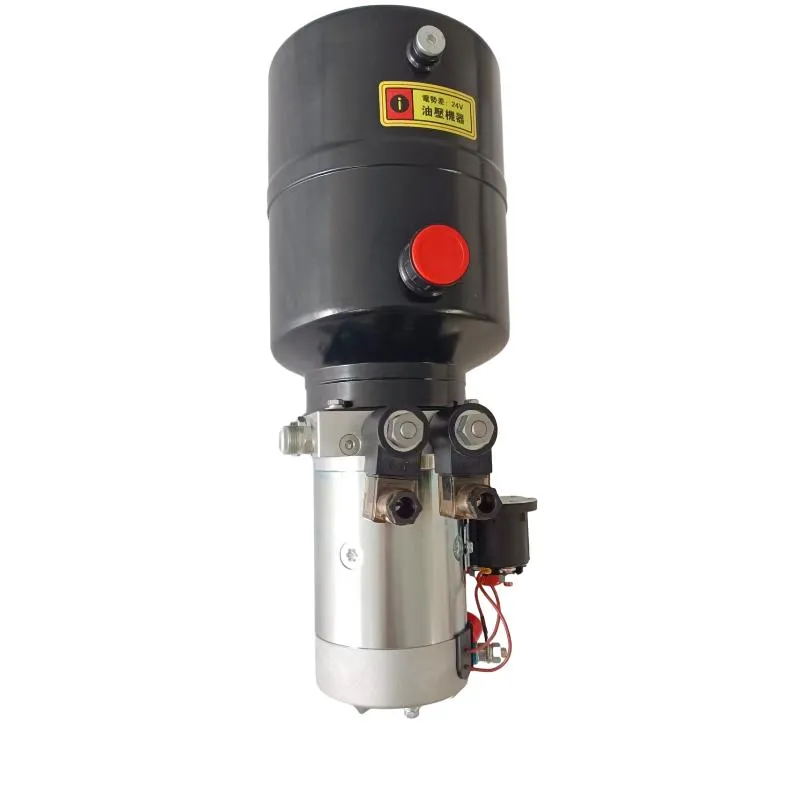Nov . 08, 2024 02:52 Back to list
Reconditioning and Manufacturing Services for Hydraulic Cylinder Components
Repack Hydraulic Cylinder Factory A Comprehensive Overview
In the realm of industrial machinery, hydraulic cylinders play a pivotal role in the operation of various applications, from construction equipment to manufacturing processes. However, over time, these cylinders can experience wear and tear, leading to leaks or diminished performance. This is where repacking comes into play, and dedicated repack hydraulic cylinder factories have emerged as vital components in maintaining the efficiency of hydraulic systems.
Understanding Hydraulic Cylinders
Hydraulic cylinders are devices that convert hydraulic energy into linear motion. They consist of a barrel, a piston, and various seals and fittings that allow for the controlled movement of hydraulic fluid. These cylinders are used in countless applications, such as forklifts, excavators, and agricultural machinery. Given their crucial role, ensuring they operate efficiently is paramount.
The Need for Repacking
Over time, the seals within hydraulic cylinders can become worn, cracked, or damaged due to factors like high pressure, excessive heat, or exposure to contaminants. This wear leads to hydraulic fluid leaks, resulting in system inefficiencies and potential damage to the hydraulic components. Repacking the hydraulic cylinder involves replacing these worn seals and ensuring the cylinder operates smoothly.
The Repacking Process
The process of repacking hydraulic cylinders involves several steps, and it is typically carried out in specialized factories equipped with the necessary tools and expertise. Here’s a brief overview of the process
1. Disassembly The hydraulic cylinder is removed from its application and carefully disassembled. This step requires precision to prevent damage to other components.
2. Inspection Once disassembled, each part of the hydraulic cylinder is thoroughly inspected for wear or damage. This includes the barrel, piston, and all associated components.
3. Cleaning Any debris, old seals, or contaminants are removed from the components. Cleaning is crucial, as even small particles can lead to future failures.
repack hydraulic cylinder factory

4. Replacement of Seals The worn seals are replaced with new, high-quality seals that match the manufacturer's specifications. The correct size and type of seal are critical for ensuring proper function.
5. Reassembly After replacing the seals, the hydraulic cylinder is reassembled. Care is taken to ensure that all components fit together perfectly and that there are no risks of leaks.
6. Testing Finally, the repacked hydraulic cylinder is tested to ensure it performs as expected. This step may include pressurizing the cylinder to confirm that there are no leaks and that it operates smoothly.
Advantages of Professional Repacking Services
Utilizing a specialized repack hydraulic cylinder factory provides several advantages
- Expertise These facilities employ trained professionals who are knowledgeable about various hydraulic systems and equipped to handle a wide range of cylinder types.
- Quality Assurance Reputable factories use high-quality materials and adhere to stringent quality control measures, ensuring that repacked cylinders meet or exceed industry standards.
- Cost-Effectiveness Repacking a hydraulic cylinder is often more economical than purchasing a new one. This process prolongs the life of the cylinder and can improve overall system performance.
- Environmental Benefits By refurbishing existing hydraulic cylinders, businesses can reduce waste and minimize environmental impact, aligning with sustainable practices.
Conclusion
In the dynamic world of industrial operations, the performance of hydraulic systems is non-negotiable. The role of repack hydraulic cylinder factories is critical in maintaining the functionality of these systems. With expertise, quality assurance, and cost-effective solutions, these facilities not only provide essential services but also contribute to enhanced productivity and sustainability in various industries. As a result, investing in professional repacking services can prove invaluable for businesses reliant on robust and efficient hydraulic operations.
-
Fork Lift Power Units - Hebei Shenghan | Efficiency, Reliability
NewsJul.13,2025
-
1.5-Ton Turbocharged Cylinder-Hebei Shenghan|Hydraulic Solution,Energy Efficiency
NewsJul.13,2025
-
Auto Hoist Power Units-Hebei Shenghan|Efficiency&Industrial Lifting
NewsJul.13,2025
-
Double Acting Power Units-Hebei Shenghan|Hydraulic Solutions,Industrial Efficiency
NewsJul.13,2025
-
1.5 Ton Lifting Cylinder 70/82-40-290-535 - High-Performance Hydraulic Solution | Hebei Shenghan
NewsJul.13,2025
-
Fork Lift Power Units - Hebei Shenghan | Efficiency&Reliability
NewsJul.13,2025
